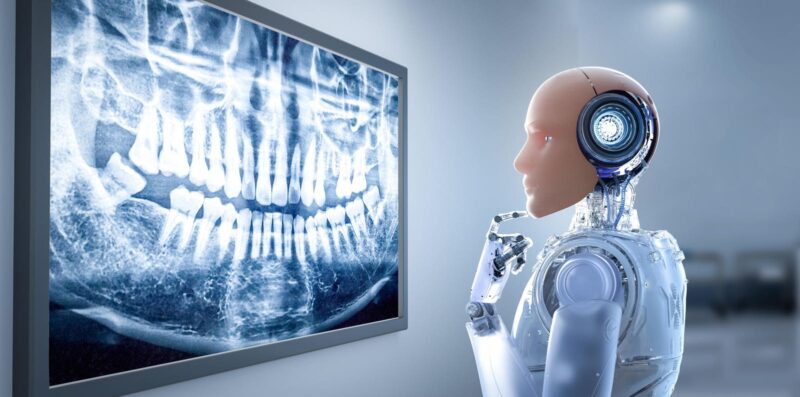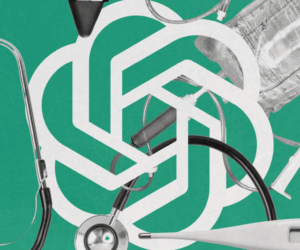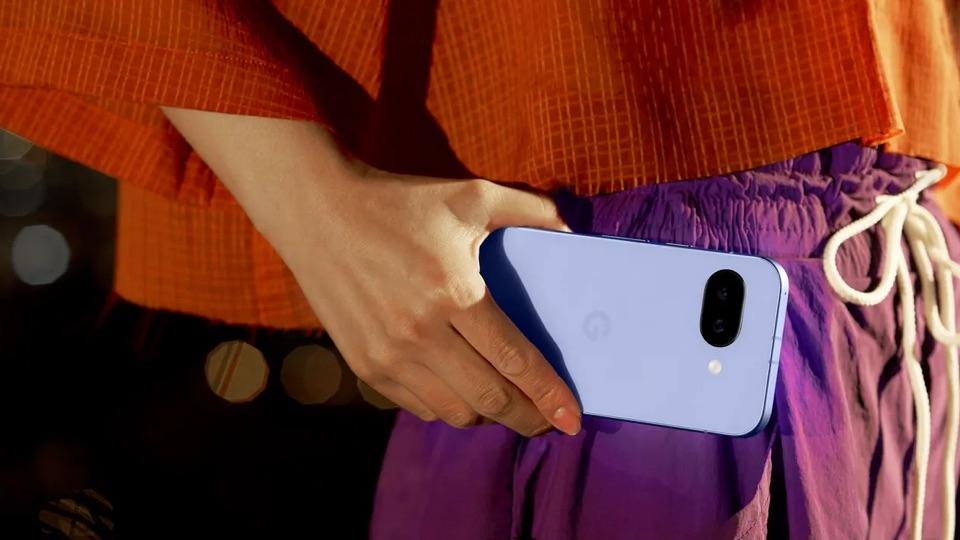Medical technology concept with 3d rendering artificial skin robot analyze x-ray teeth tomography
getty
We’re getting a lot of insights from artificial intelligence that had previously eluded even modern generations of human scientists – and some of the most important ones come back to oral health.
That’s revolutionizing a field of medicine that, by most accounts, could use some modernization. Dental work has been largely the same for the last 30 or 40 years – but that’s likely to change soon. AI is changing nearly everything about the way that professionals treat “caries,” or missing teeth, or protect the moth from wear in other ways. And that will have surprising results for our overall health and longevity.
“Artificial intelligence (AI) is … offering innovative tools and techniques for optimizing diagnosis, treatment planning, and patient management,” write a team of study authors in a piece from the National Library of Medicine. “AI technologies, such as machine learning, deep learning, and computer vision, are increasingly being integrated into dental practice to analyze clinical images, identify pathological conditions, and predict disease progression. By utilizing AI algorithms, dental professionals can detect issues like caries, periodontal disease and oral cancer at an earlier stage, thus improving patient outcomes.”
Or check out this article from JADA or the Journal of the American Dental Association, where author J. Tim Wright, DDS, starts out with a nod to history in a way that I’m very familiar with:
“At the outset of the computer age, artificial intelligence (AI) quickly became a concept,” Wright begins. “John McCarthy, who coined the term at the Dartmouth Conference in 1956, defined AI as the science and engineering of making intelligent machines. Fast-forward to the present, and we are observing how AI is transforming the health care industry.”
Wright outlines some of these major use cases:
“Certain commercially available tools, such as voice-recognition software, that enable electronic charting of dental examinations and the use of AI-generated patient notes on health status and therapeutic recommendations, have the potential to change the way we approach patient-centered care. … the potential applications for oral health care are broad in scope, including marketing, filing claims, voice-activated dental charting, diagnostics, and treatment planning.”
More About Teeth and Saliva
In a recent set of Ted Talks associated with wearable company WHOOP, there were not one but two speakers talking about the mouth, and how dental and oral health leads to outcomes in the rest of the body. Both of these speakers had personal stories to tell: Mariya Filipova chronicled her own bout with cancer and a kidney tumor named “Bertha,” and Stephen Thorne, founder and CEO of PDS Health, narrated his education on health coming from losing his mother after various interventions.
The extreme nature of Filipova’s cancer case led her to dig deeper into aspects of clinical care:
“Bertha was 29 centimeters by 18 by 22,” she explained, “five pounds of friendly tissue taking up half of my abdomen. To give you perspective, that’s roughly the size of a newborn baby, only in this case, it could bleed sporadically, wreaking havoc in my internal organs or worse. And yet, I consider myself lucky, lucky because Bertha was so big, so complex, so completely beyond what my doctors at the time had seen before, that she couldn’t be handled with the conveyor belt of care that was standard at the time.”
Eventually, she noted, nearly a dozen different specialists came together to figure out not just how to treat the tumor, but how to use the case for medical research. And she got to keep both her kidneys.
“Nephrologists and geneticists were talking to each other, asking, how did this happen?” she said. “So over the course of 18 months, those brilliant minds who typically live in separate worlds came together, created a computational model of Bertha, shrunk her in size, and over the course of a six hour surgery at Mass General, removed her safely.”
Siloed Care and Other Obstacles
“Since my experience with Berta,” Filipova continued, “I have dedicated my career in studying healthcare transformation for convergence situations where, when we break silos, we deliver higher quality care.”
Citing overlooked and underfunded areas of healthcare, she noted that in the past, women’s medical research has been on the back burner.
“For decades, we were considering treatment for women based on men,” she said. “It took mounting evidence, clinical, reputable evidence, to understand the women had different symptoms when it came to heart attack, drug interactions and disease progression.”
Back to the Mouth
In her talk, Filipova eventually revealed that work on biomarkers and other researchers has shown us that oral health is fundamentally relevant to our longevity.
“Slowly, we’re starting to connect the dots between adverse outcomes in the operating room or chronic condition or cost of chronic condition management and oral health interventions,” she said. “Ask your dentist about your diabetes, about your heart condition, about your medication. Tell your doctor about your toothache, about your bleeding gums or dry mouth. Begin a conversation. Expect convergence, and don’t wait until our technology or regulatory or other systems catch up.”
Thorne came to similar conclusions regarding the power of oral health, but also stressed that saliva can tell us a lot about the state of our body.
“Our saliva is filled with all sorts of enzymes, inflammatory mediators, and over 200 types of bacteria,” he said. “Science has exploded in recent years, and it is now irrefutable. Our mouths are a gateway to so many of the chronic inflammatory diseases that we’ve been talking about here today.”
Some silent signals, he suggested, can clue us in to what the future holds.
“Chronic inflammation doesn’t heal,” he said. “It hurts. Chronic inflammation actually wrecks our health, and it’s a silent killer. And what most people don’t realize is that chronic inflammation and many of the diseases and health problems associated with it start in the mouth. … The reality is today, we cannot be healthy without good oral health, and your dentist can literally change your life.”
That’s all a lot to take in – should you rush to the dentist?
Well, a lot of this advice is more holistic than immediate. But it makes a lot of sense, and we’ll probably be getting many more new interventions that tomorrow’s doctors will consider vital. Today’s standard of care is likely to soon seem archaic, a “dark age” of medicine where the robust insights that come with AI were unknown secrets.
That’s good news, in a way, but it’s also a weighty responsibility, too. Each of us will have to keep reading up, keep up with the trends, and decide how to interact with quickly evolving technologies. As we do that, though, we’re likely to live longer with AI.









